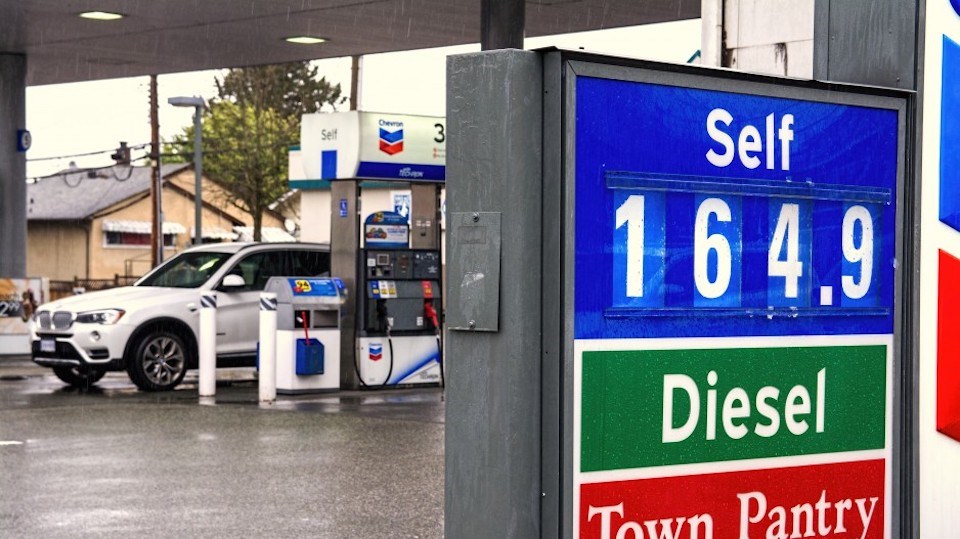Gasoline prices are expected to jump another two cents per litre Wednesday, according to GasWizard, due to temporary weather-related refinery outages on the West Coast.
And by the Victoria Day long weekend, gas prices in Metro Vancouver could hit $1.83 per litre, one analyst predicts, due to the fact global oil supplies are roughly 2 million barrels short of regular demand.
The Parkland Corp. had no sooner restarted its refinery in Burnaby in mid-December, following a three-week shutdown of the Trans Mountain pipeline, when it was temporarily affected by freezing temperatures, according to Dan McTeague, president of Canadians for Affordable Energy.
It was one of two West Coast refineries affected by frigid temperatures, McTeague said. The other was the Holly Frontier refinery in Washington state.
Parkland has not responded to queries from BIV News to confirm that that the refinery’s operations were affected by cold weather.
McTeague said it was reported that the two refineries had to slow down production, due to frigid temperatures.
“It was temporary,” McTeague said. “It was only a few days, but it was enough to cause a spike.”
Gasoline prices rose by roughly $0.14 per litre in the Lower Mainland between Dec. 22, 2021 and Jan. 1, 2022, when they hit $1.69 per litre. Metro Vancouver has seen those kinds of price spikes before, but they typically happen in the summertime, when demand for gasoline is higher, not in the wintertime.
In Metro Vancouver, regular gasoline prices were averaging about $1.66 per litre on Tuesday — the highest price for any Canadian city. According to GasWizard, they are expected to rise another two cents to $1.68 tomorrow.
By contrast, average regular gasoline prices in Montreal are around $1.54 per litre, $1.41 per litre in Toronto and $1.40 per litre in Calgary.
While things like a transit levy and carbon taxes are partly responsible for B.C.’s comparatively higher gasoline prices, McTeague said the biggest contributor to higher prices at the pumps in B.C. is the province's low carbon fuel standard.
Based on the B.C. government’s own reporting — its low carbon fuel credit market reports — McTeague estimates the low carbon fuel standard now adds $0.17 to each litre of gasoline, which is why he calls it “B.C.’s second carbon tax.”
In mid-November, gasoline supplies were interrupted when flooding that took out roads and bridges resulted in the Trans Mountain pipeline — which supplies roughly a third of the gasoline and diesel to southwestern B.C. — being shut down as a precaution. That led to the Parkland refinery shutting down as well.
The Trans Mountain pipeline resumed operation on Dec. 5, and the Parkland refinery began ramping back up on Dec. 11.
But refining capacity isn’t the only thing that affects the price at the pumps — so do oil prices and supplies, and McTeague predicts North America could be in for a gasoline price shock by summer.
OPEC recently estimated that the world is currently about 2.3 million barrels short of what would normally be needed. The U.S. alone is short about 1.3 million what production was before the pandemic.
Barring a global recession or another paralyzing wave of COVID-19 and its variants, in 2022 higher demand for oil from a recovering economy and short supplies could result in some dramatic gasoline price increases, McTeague predicts.
While local gasoline prices should drop between now and the end of January, as local refining capacity gets back to normal, McTeague believes gasoline prices in Metro Vancouver could go as high as $1.83 to $1.85 per litre sometime between the end of February and the beginning of June, due to economic recovery and low oil supplies.
"Normal is going to be pretty damned pricey," McTeague said.



